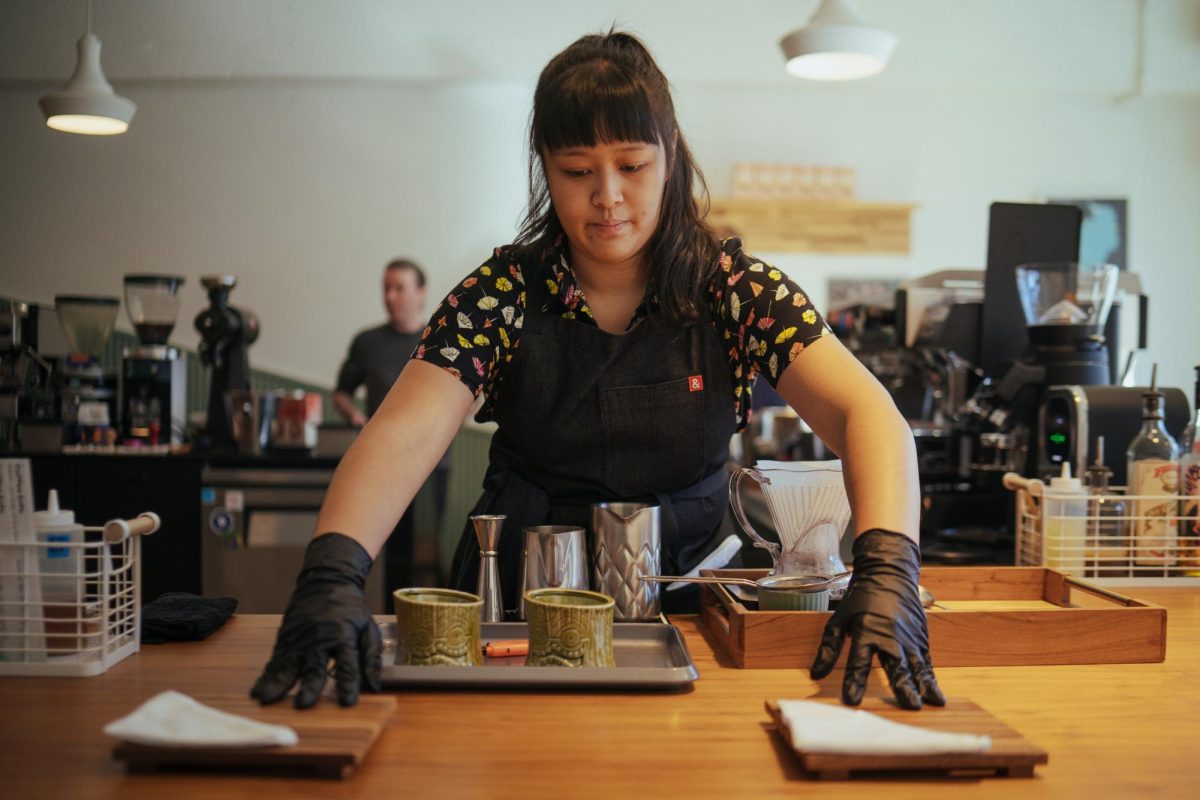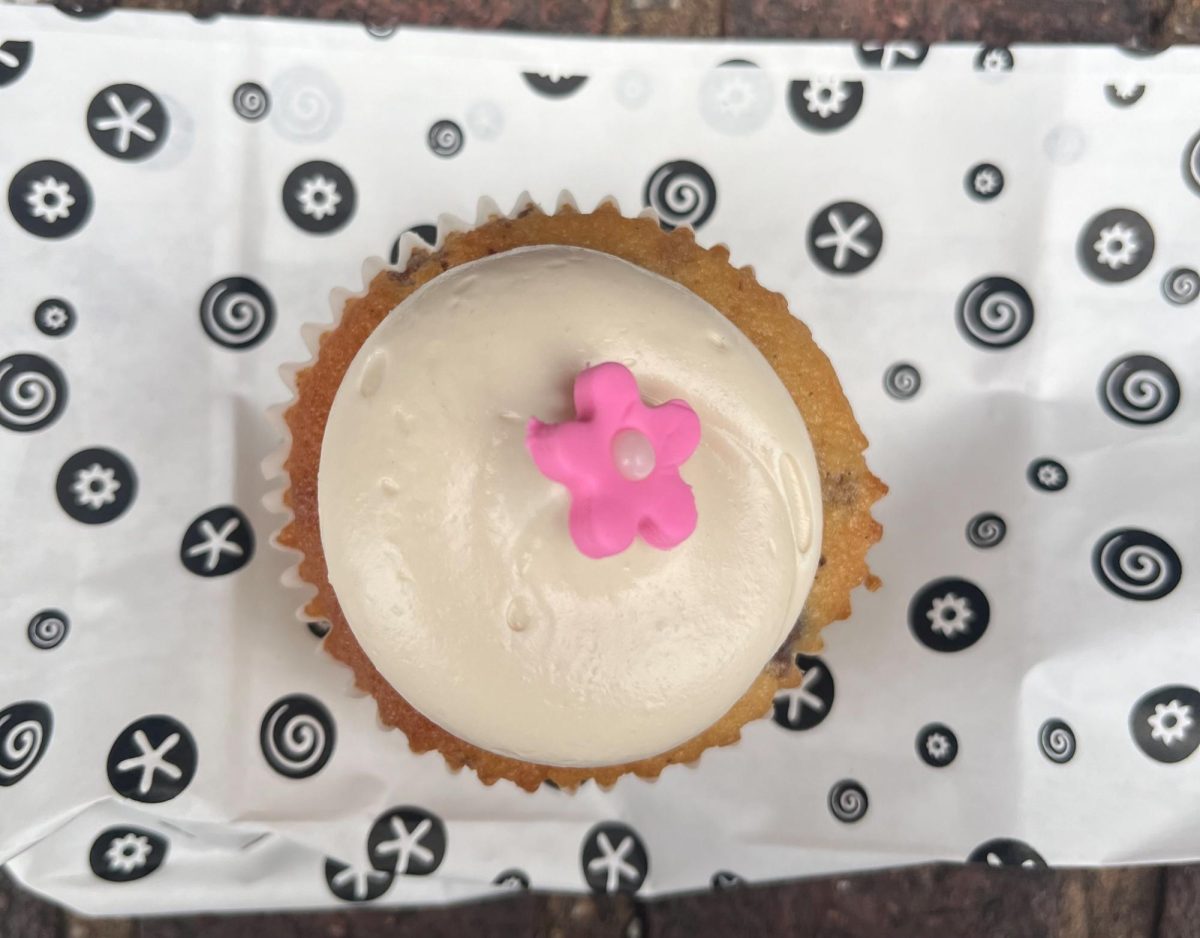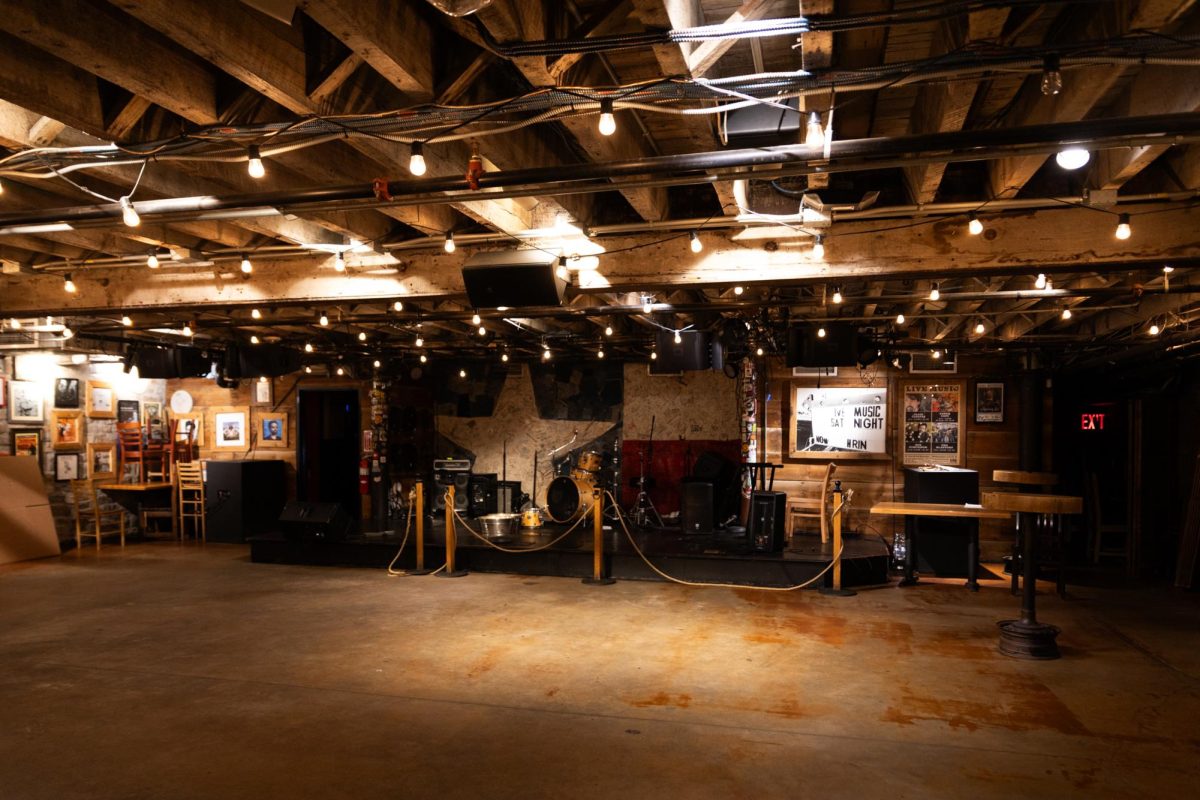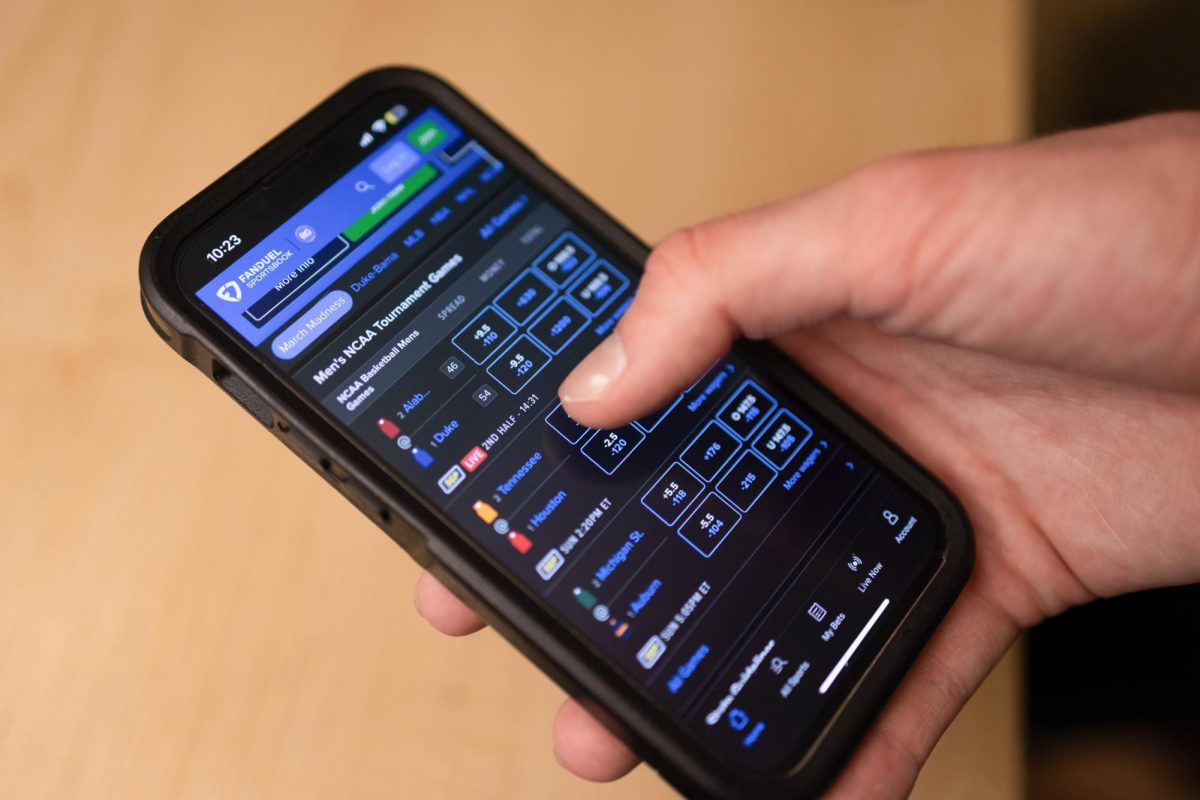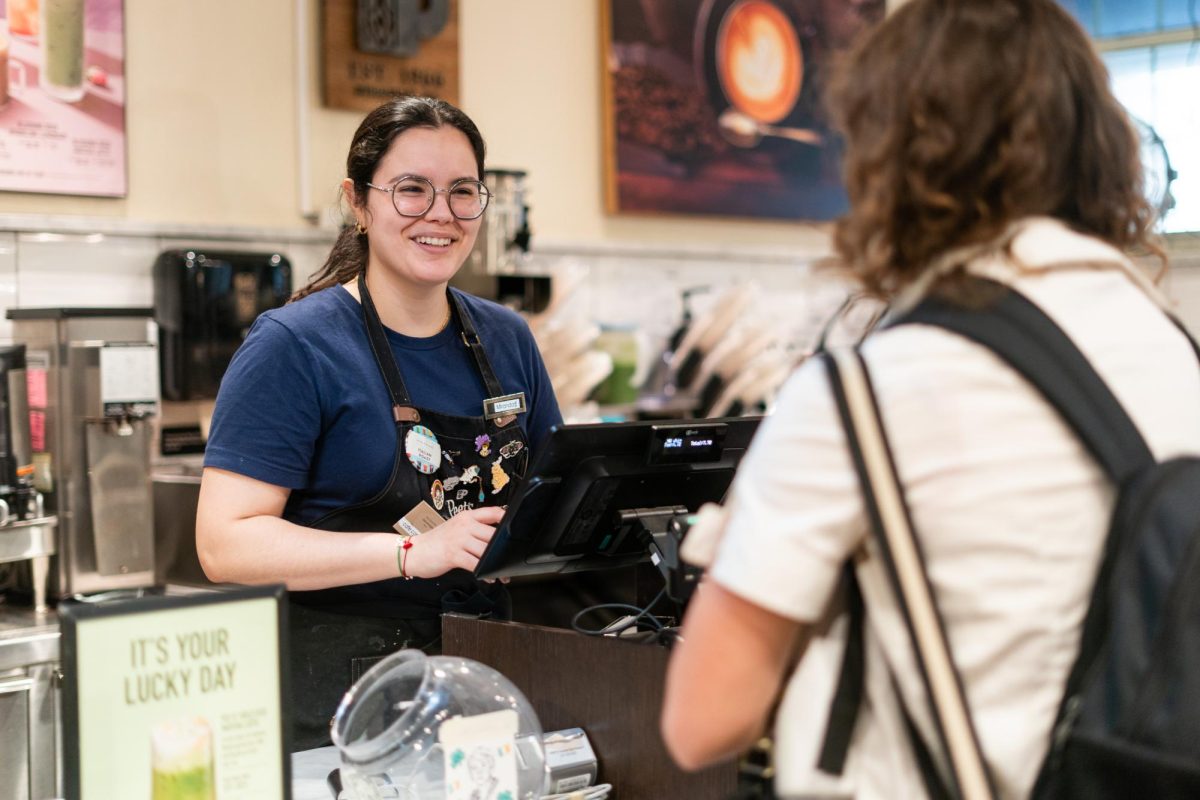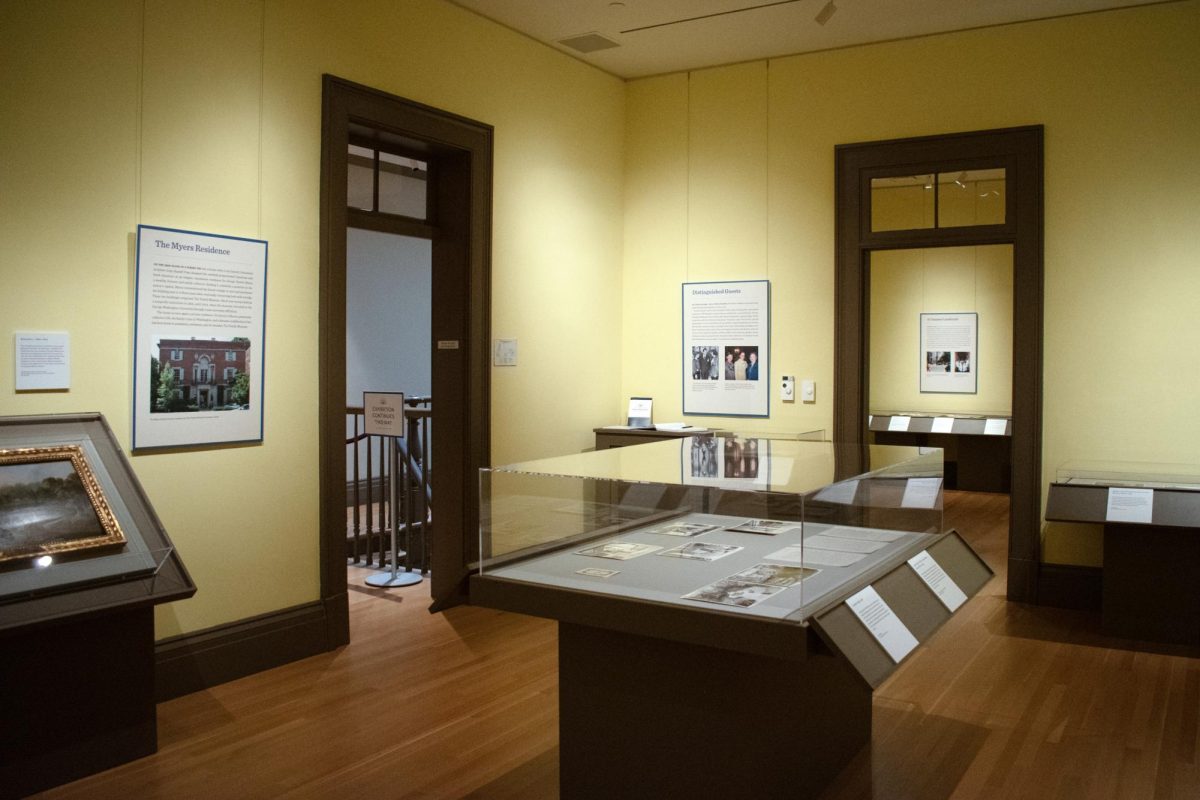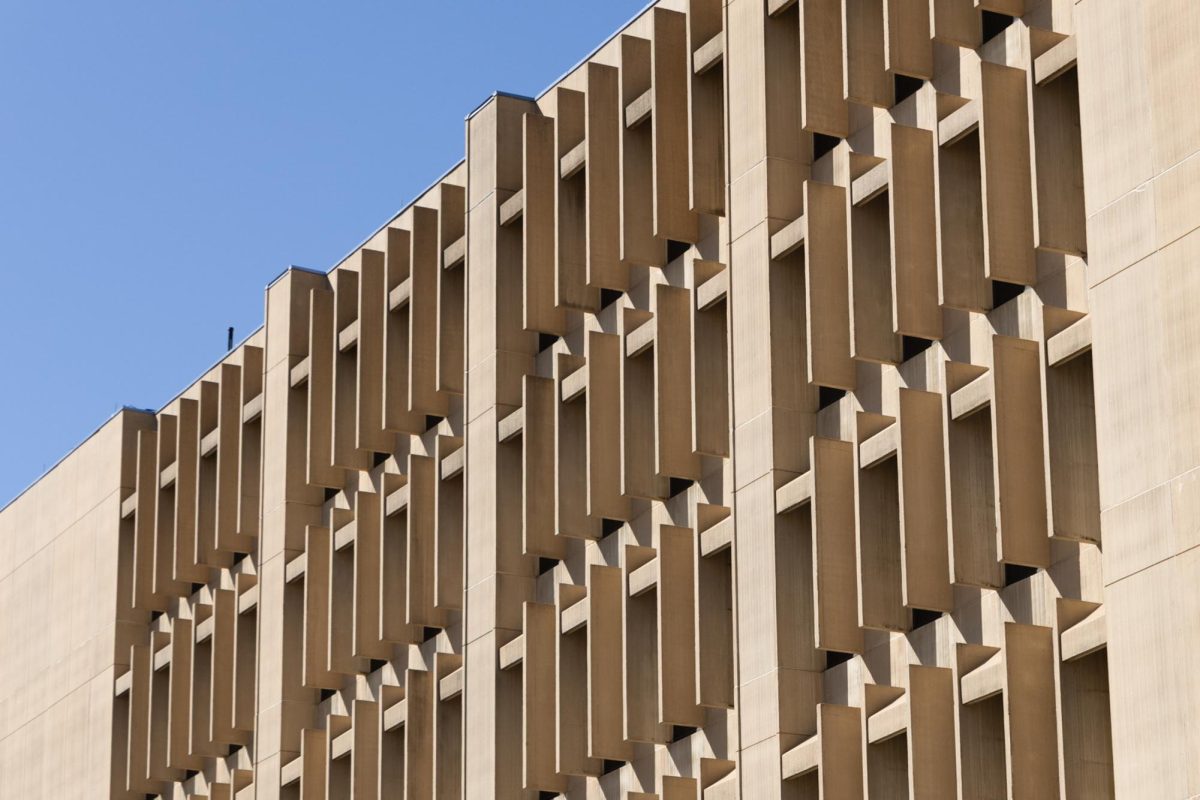Competition was a brewin’ at the U.S. Coffee Championships qualifier this weekend as competitors put the “bar” in barista — crafting their best and boldest alcoholic coffee beverages.
Contestants traveled nationwide — from Maryland, Texas, California and everywhere in between — to participate in the coffee-cocktail competition located at Counter Culture Coffee’s training facility in Adams Morgan. At the qualifying event Feb. 3-4, baristas participated in two categories: Spirit Bar, in which they concocted two mixed drinks with randomly selected ingredients and Stage Presentation, where they crafted hot and cold designer drinks.
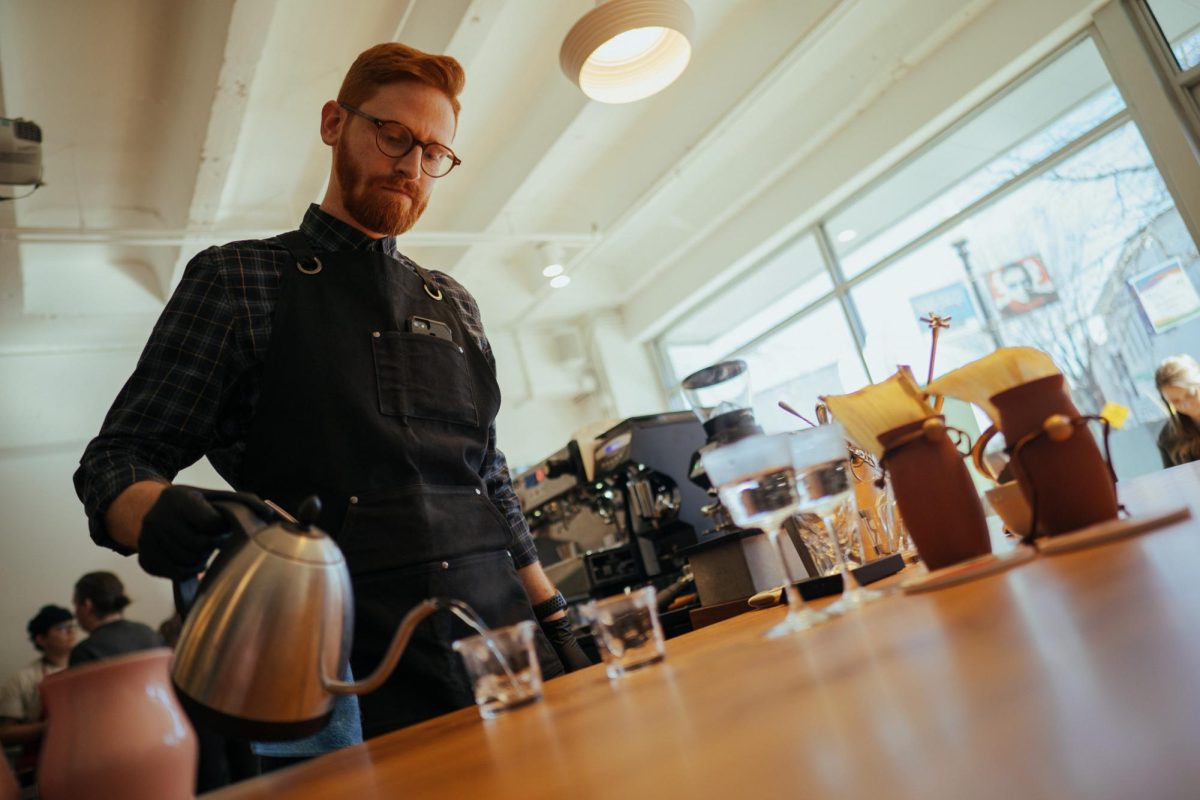
Upon entering Counter Culture Coffee’s training center, a warm coziness — or maybe it was a coffee-scented heat wave — settled over the room as baristas calmly warmed up for the Coffee in Good Spirits.
Situated behind an oversized, industrial grade coffee brewing instrument, baristas clad with beanies, well-trimmed beards and concentrated demeanors took turns making coffee blends with samplings of unusual flavors like banana, pouring drinks in martini glasses and narrating their recipes for attendees.
Every step of their process was meticulous and precise — proving their glossy copies of “The Professional Barista’s Handbook” and “Coffee People Zine” were mere training center decorations rather than a call for help.
All 10 competitors qualified for the national tournament in Chicago, with Reynalyn Callejo, Olympia Coffee in Seattle, emerging victorious. Second and third place went to Hugo Cano, Amberson Coffee in Indianapolis, and Kaley Gann, Ceremony Coffee Roasters, Annapolis, Maryland, respectively.
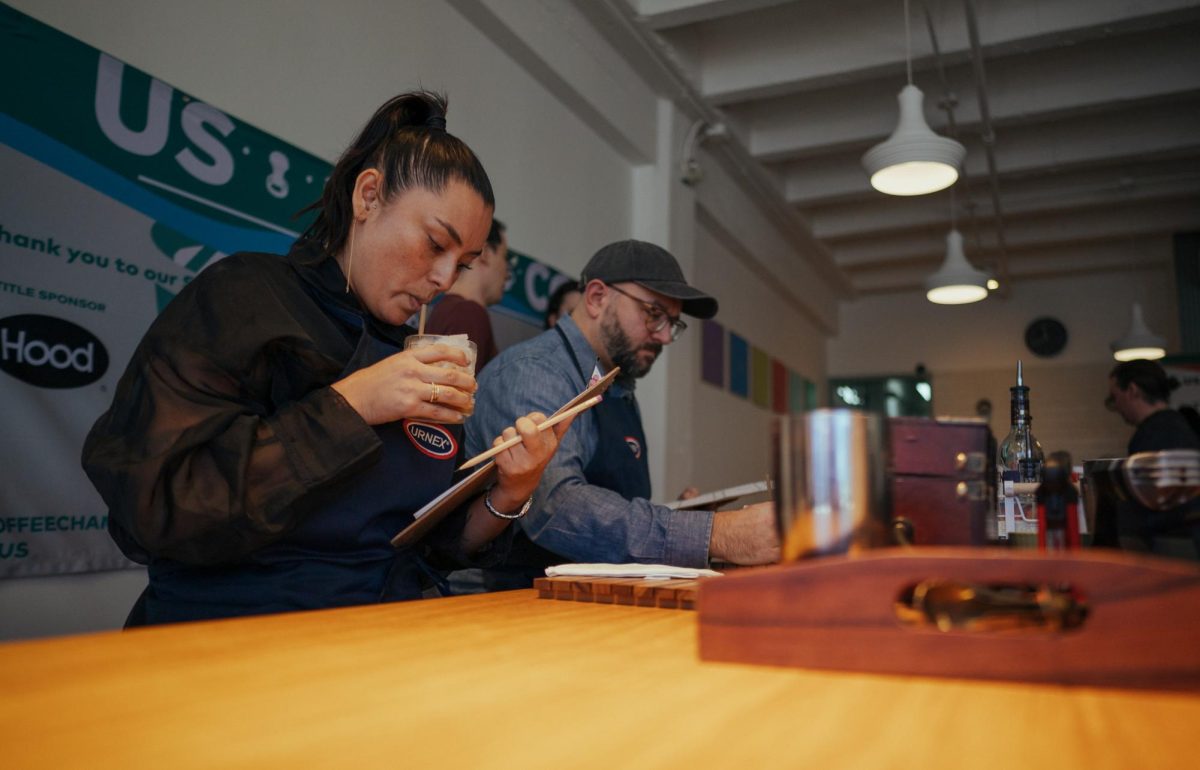
Judges rate drinks on a scale of zero to six based on presentation, technical skills, taste, performance and if the drink is “commercially applicable.”
Ashley Whelan, co-head judge of Coffee in Spirits, said the possibility of innovation and influence over the coffee industry is another factor she considers when judging. She said she enjoys watching competitors use unconventional ingredients that you wouldn’t expect to mesh with flawless execution, often highlighting another even more surprising flavor.
“It’s a manipulation of ingredients to create a wonderful customer service experience and drinking experience,” Whelan said.
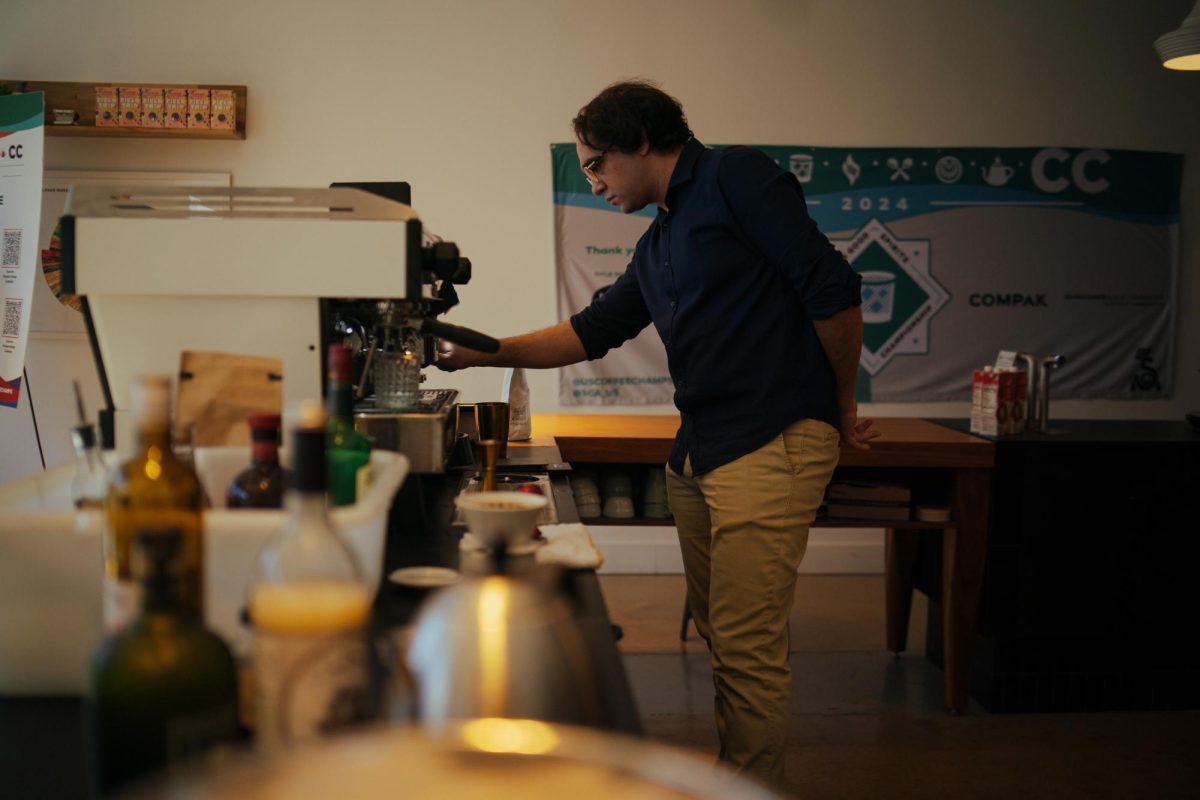
As baristas and bartenders alike brewed their concoctions, judges took meticulous notes on the performance, one of the several categories that contestants are judged on. Surrounded by high-tech coffee and espresso machines, a barista’s technical skills are of the utmost importance to make the best drink possible.
Sharon Fung traveled from California to judge the Coffee in Good Spirits qualifying competition. She said it’s a privilege to sample a drink a competitor poured hours into, especially when the drink highlight parts of a barista’s background.
“I feel very grateful that I get to meet so many talented people from different backgrounds,” Fung said. “I feel very grateful that I get to taste — or drink — where they’re from.”
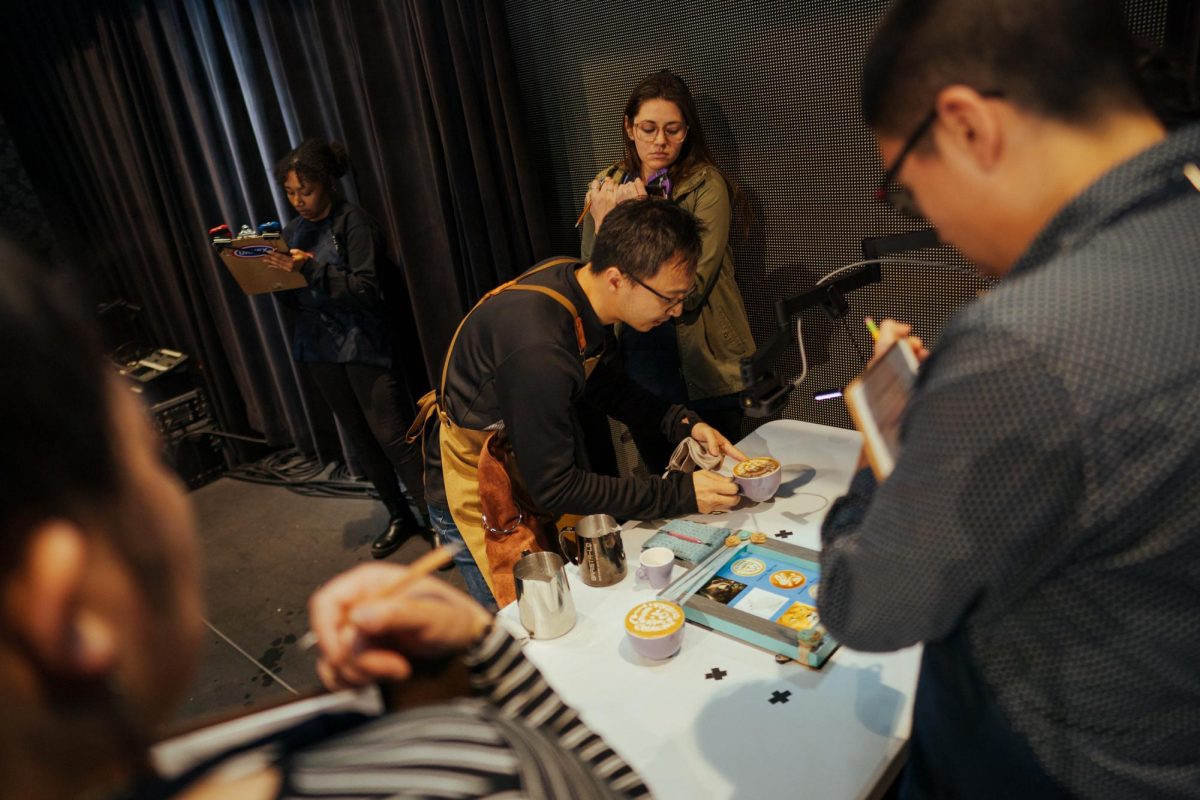
While competitive “spirits” remained high pre-competition, by the time 5 p.m. rolled around, judges, competitors, organizers and community members alike were bubbling with friendly camaraderie. Chatter echoed across the concrete floors and glossy black stone counters as the coffee community came together.
Lee Sill, chair of the Coffee in Good Spirits committee, said this creative collaboration and community is what initially drew him to coffee. When Sill was in grad school in Louisville, Kentucky, he said he remembers “geeking out” about coffee with friends. He recalled friends buying industrial espresso machines to fix them up or purchasing high-quality coffee to roast at home. He said the competition mirrors the community he found 15 years ago.
“It’s also an opportunity for camaraderie and community,” Sill said. “That’s the thing that drew me in when I was getting into coffee is how much of a tight-knit community it is.”

Although competitions are often seen as cutthroat, Sill emphasized the coffee community’s positive attitude they bring to the events. He said these competitions help remind contestants of why they compete in the first place: to innovate and continue to build community.
“We all kind of lift each other up and encourage each other. We’re all kind of re-inspiring each other a little bit,” Sill said.
He said winners of these competitions represent the “coffee community and coffee culture” on the world stage and help progress the future of the American coffee industry.


